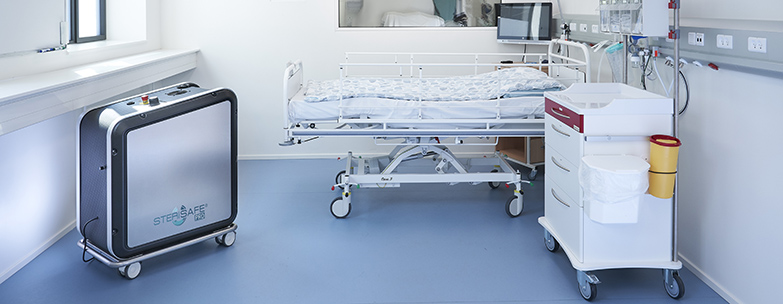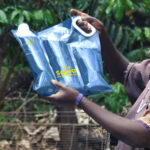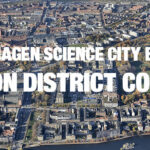Disinfection innovators expand after investment
The whole-room disinfection innovators Sterisafe APS have had an explosive start-up journey. They incorporated their Copenhagen Science City-based company in September of 2018. Already in 2019, they had a turnover of one million Euro. In February, their original investor team added one million Euro in fresh funding. Then corona virus lit a rocket booster under the company.
Extraordinary success on bleak background
The company’s’ product, also named Sterisafe, automates the process of disinfecting rooms such as sick bays and operating theatres at hospitals. The investment was supposed to boost the start-ups’ sales- and marketing staff. That plan has been shelved in favour of ramping up production, explains Sterisafe’s CEO Eliot Booth.
I feel very strange following the news about the corona crisis these days. It is terrible for the world, but for our business, it brings great opportunities. During the last month, we sold more units than we did all of 2019: Eliot Booth, CEO, Sterisafe
Location helped company develop
Automated whole room disinfection is likely to make visits to the hospital a lot safer, so it is not an idea that Sterisafe APS have to themselves. What they do have is an edge. Thanks to their location in COBIS, a start-up community in the innovation district Copenhagen Science City, they have been able to base their product on a deep understanding of atmospheric chemistry. The company recruited all key R&D staff at the University of Copenhagen, Department of Chemistry, Explains the company’s COO Julien Rzepkowski who is, himself, a former University of Copenhagen student.
The university is a global hot-spot in fundamental research into gas phase chemistry. Whenever we have visitors, I take them down to our car park and point across the lawn to the chemistry department. Then I point across the road to the University College Copenhagen, where we carried out hundreds of early tests together with their Microbiology research and education team and to the University Hospital Rigshospitalet where we hope to start collaboration soon”: Julien Rzepkowski, COO Sterisafe APS.
Proven effect on corona virus
Other products for whole room disinfection rely on either ultraviolet light, which cannot go around corners, or on gaseous chemicals, which can, but are expensive and environmentally unsound. Sterisafes’ proprietary technology transforms the naturally occurring oxygen (O2) in a room into ozone (O3). Ozone attacks the very cellular fabric of bacteria, virus and fungi, killing them on all surfaces and in the air. After a treatment, the Sterisafe unit converts ozone back into harmless old oxygen and the disinfected room is safe to enter once again. According to Julien Rzepkowski, a cornerstone of the company’s success is, that they approach their R&D work with a scientific mindset, so they can document that the product works.
We recently completed tests on corona virus with the internationally acclaimed laboratories Dr. Brill & Dr. Steinmann Institute for hygiene and microbiology. They proved that Sterisafe units are effective against this novel corona as well. All research tells us, that automated whole room disinfection is more efficient than manual cleaning. Our technology allows us to document hygiene and increase traceability”: Julien Rzepkowski, COO Sterisafe APS.
Need for new production facilities
With just 15 on staff, Sterisafe had already sold units in Europe, the Middle East and South America. On the heels of the Covid 19 virus, the company is suddenly receiving calls from all corners of the globe. According to CEO Eliot Booth this has presented the company with a fresh set of challenges.
We produce our disinfection units at a factory in Sweden. One issue is that this factory has now reached capacity. A completely different issue is that with borders closing down everywhere, we really want a production facility in Denmark. We are currently negotiating with a factory on the island of Funen, to open three production lines for our product”: Eliot Booth, CEO, Sterisafe.




